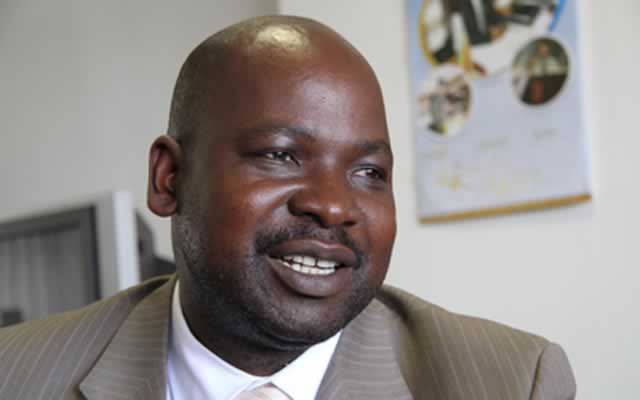LET THEM HAVE SEX, MARRY…Tomana says 12-year-olds CAN consent


Auxillia Katongomara Chronicle Reporter—
GIRLS as young as 12 must be listened to by the courts if they wish to start families with older men because they are capable of giving consent to sex, Prosecutor General Johannes Tomana has told The Chronicle. Risking the ire of child rights campaigners, Tomana defended the courts for refusing to jail child sex predators who can prove that there was “consent”.
Zimbabwe’s top prosecutor says he also finds no problem with child molesters who escape with community service sentences serving their punishment at schools — with potentially hundreds more victims.
Tomana’s extraordinary intervention came after MPs and children’s rights advocates demanded legislative reforms to enhance legal protection for children under the age of 16, with the courts increasingly accepting that children between 12 and 16 are capable of giving consent to sex.
Zimbabwe’s age of consent is 16.
Tomana told The Chronicle that school dropouts, in particular, should be allowed to marry even at a young age because they have no “alternative”. Sending their abusers to jail would ruin their lives, he said.
If young girls were to be asked what they prefer, most would say they should be allowed to have sex after turning 12, Tomana claimed.
“It’s assumed that the girl child’s independent decisions start at an age that those that are speaking want to fix, but if you go out there you’ll find out that some of them may want to start out in life early,” the Prosecutor General said, speaking on Wednesday during a visit to Bulawayo.
Tomana says with a socio and economic environment that creates hopelessness in young girls, largely through lack of formal education, it is unfair to demand of teenagers to defer sexual encounters with men.
“If you look at it, we don’t have a framework for example, where we can guarantee that all our girl children are usefully engaged before they actually get above 18 years, we don’t have that,” he explained.
“We’ve nine-year-olds, 12-year-olds, 13-year-olds who’re actually not in school, who’re not doing anything for example. What are we saying to them? We say you can’t even do this [have sex], when the environment is not giving them alternative engagements? What are we talking about?
“You need to be able to be holistic about it. If we educate our girl child universally up to, for example, where they get to the age of 18 in an environment where you guarantee that they’re not abused, then we’re talking.
“But to simply say ‘no such and such conduct’ for any girl say below the age of 16, I think we’ve not asked ourselves what we’re saying about that girl who would rather prefer to lead their life in the direction of getting married.
“Should they just sit there and wait until they get to about 21 doing nothing? Is that what you’re saying? You don’t have anything that they should be engaged in while they wait to become the age. What do you want them to do because in some cultures, for example, they value marriage more than anything else because when your girl child is married, you’ve achieved what any father or mother would want to expect in their girl child.
“If, for example, we’re able to marry off our child at 15 and she’s married, are you saying that should not happen even where, for example, there’s nothing else that that girl could be doing? Is that what you are saying?
“We need to look at it in a very practical, wholesome way, and I think it’s important to talk to the girl child. I want to say they’re very sensible people, and I know girls develop faster than boys and they mature faster than boys.
“Are we saying we should continue talking on their behalf when they’re there? Do we just change these laws to suit ourselves and our dreams that have nothing to do with addressing the real conditions that they live in?”
Tomana’s liberal views around child marriage will alarm activists who only this week highlighted the problem of child marriages as Zimbabwe joined the rest of Africa in marking the Day of the African Child on Tuesday.
The African Committee of Experts on the Rights and Welfare of the Child (ACERWC) revealed that Zimbabwe, along with Guinea Bissau, Mauritania, Mali, Nigeria, Uganda, Burkina Faso, Ethiopia, Niger and Chad had the highest prevalence of child marriages on the continent.
And according to the United Nations Children’s Fund (UNICEF), in its State of the World’s Children Report (2015), Mashonaland Central leads in child marriages with 50 percent. In second place is Mashonaland West with 42 percent, Masvingo 39 percent, Mashonaland East 36 percent, Midlands 31 percent, Manicaland 30 percent, Matabeleland North 27 percent, Harare 19 percent, Matabeleland South 18 percent while Bulawayo has the least prevalence with about 10 percent.
Tomana insists the current legal framework protecting children from sexual abuse in sections 64 and 70 of the Criminal Law (Codification Act and Reform) is sufficient and compliant with section 81 of the new Constitution, although some lawyers, notably Harare lawyer Chris Mhike, argue otherwise.
He said: “The advocacy that we’re having now is that even at 16, let’s just treat them as rape. Now, is that going to achieve the objective that we’re clamouring for the girl child?
“I think that’s the question that should be answered by everybody who’s interested in addressing this situation and I think the girl child herself must talk.”
Tomana says he does not “see any harm” in convicted child sex predators performing community service sentences in schools where there is a real risk of carrying out more sex attacks on young girls.
He argued: “You see, the idea is to embarrass you, when we punish you the idea is to bring you down to mother earth. Now, if a whole man like me for example is seen cutting grass in front of a school and everybody is saying ‘that’s a criminal’, don’t you think that reduces me to my correct kind of level?
“I’m not scary to anyone else because I’ve been reduced to my proper size. I’m no longer a threat to anyone because I’m actually under supervision, you know… So I don’t see any harm in that.”










Comments